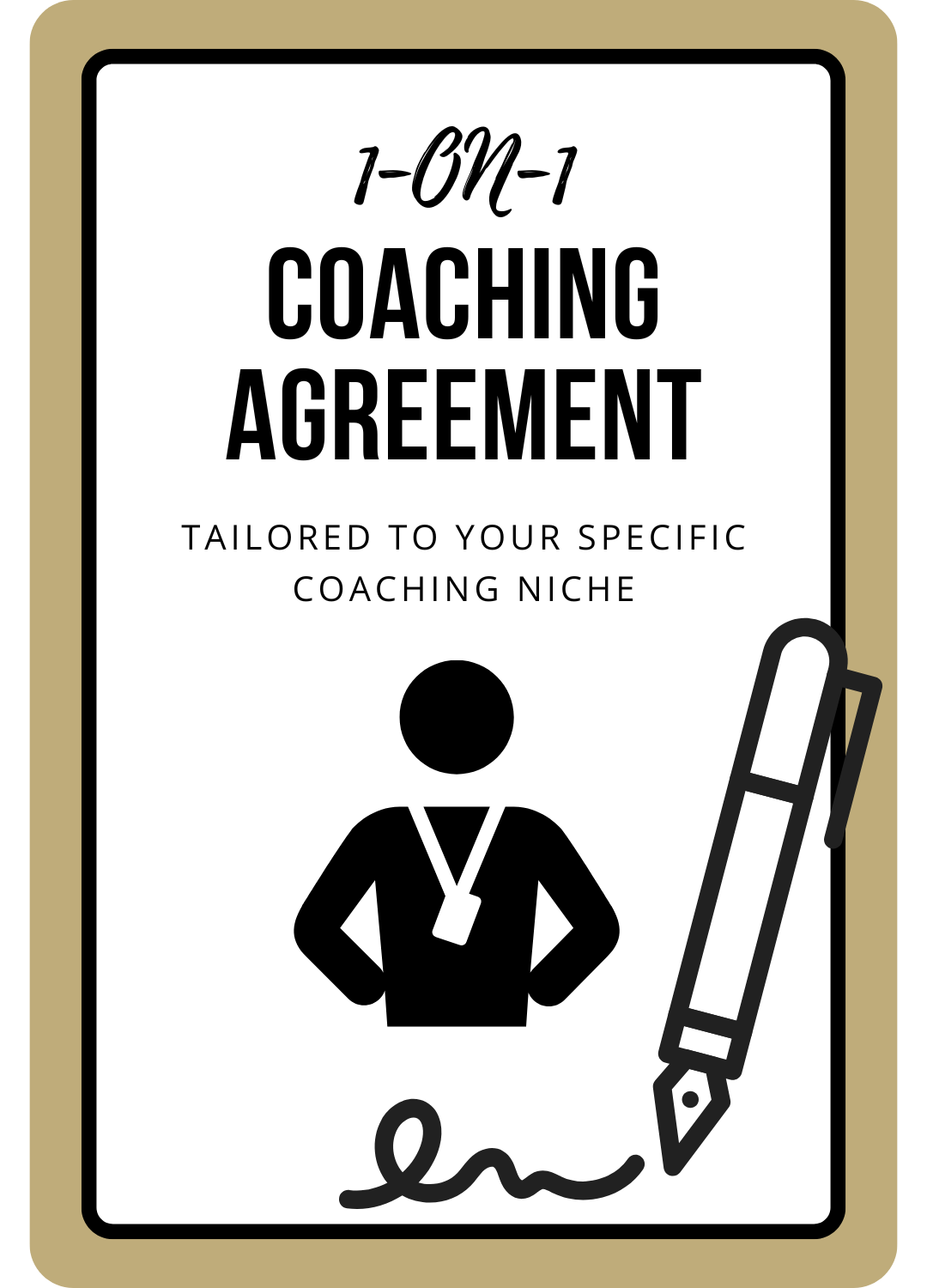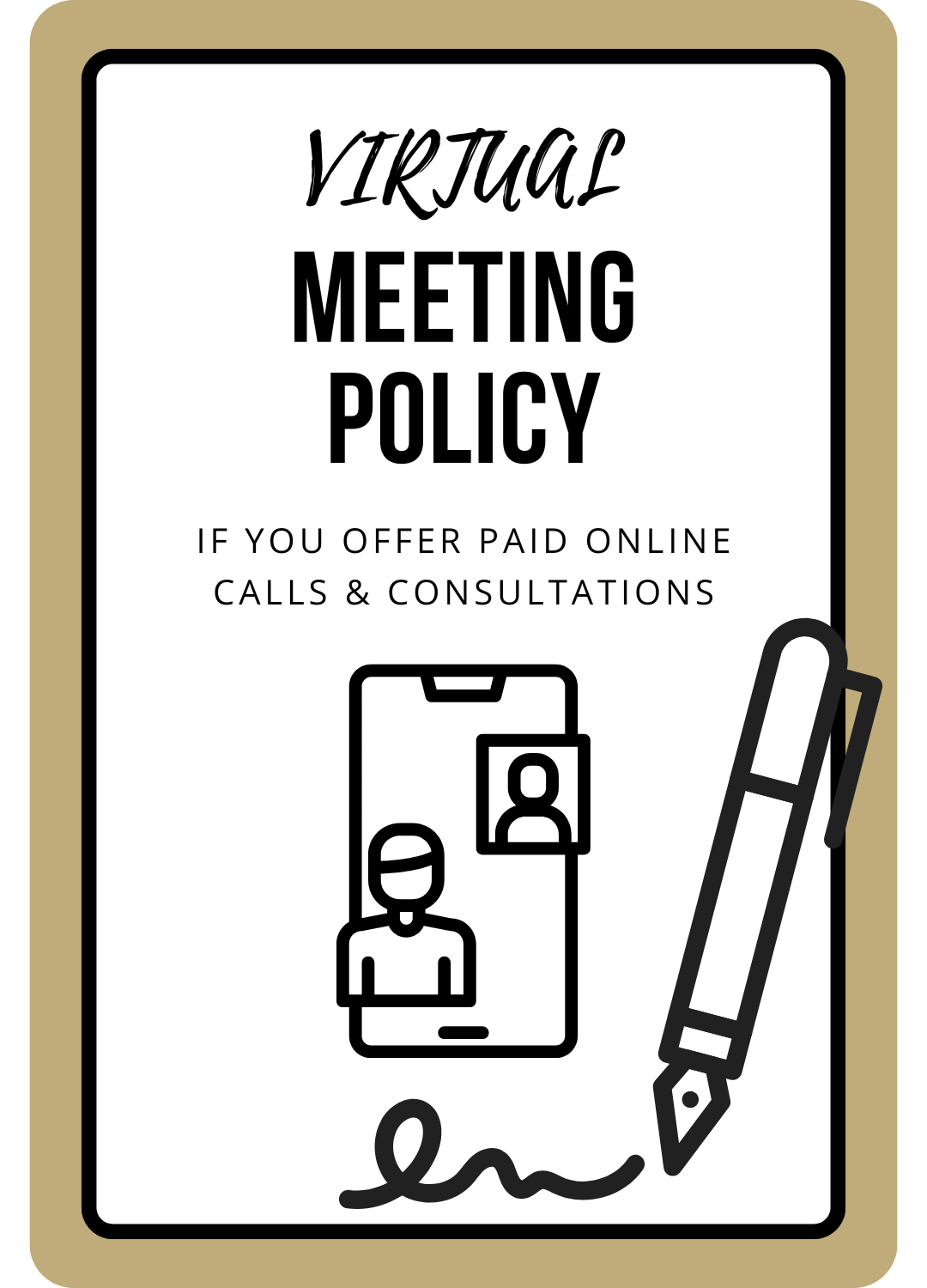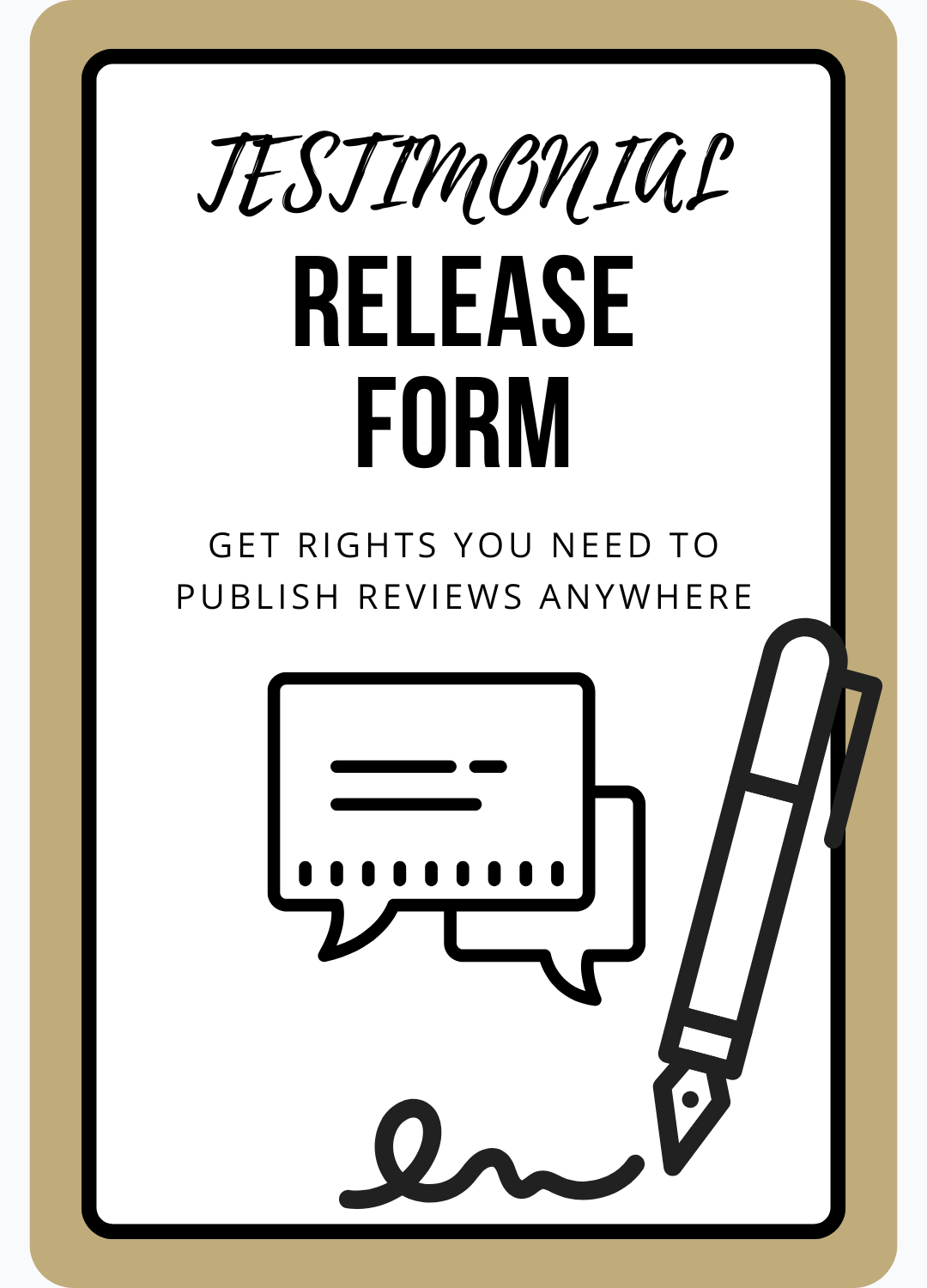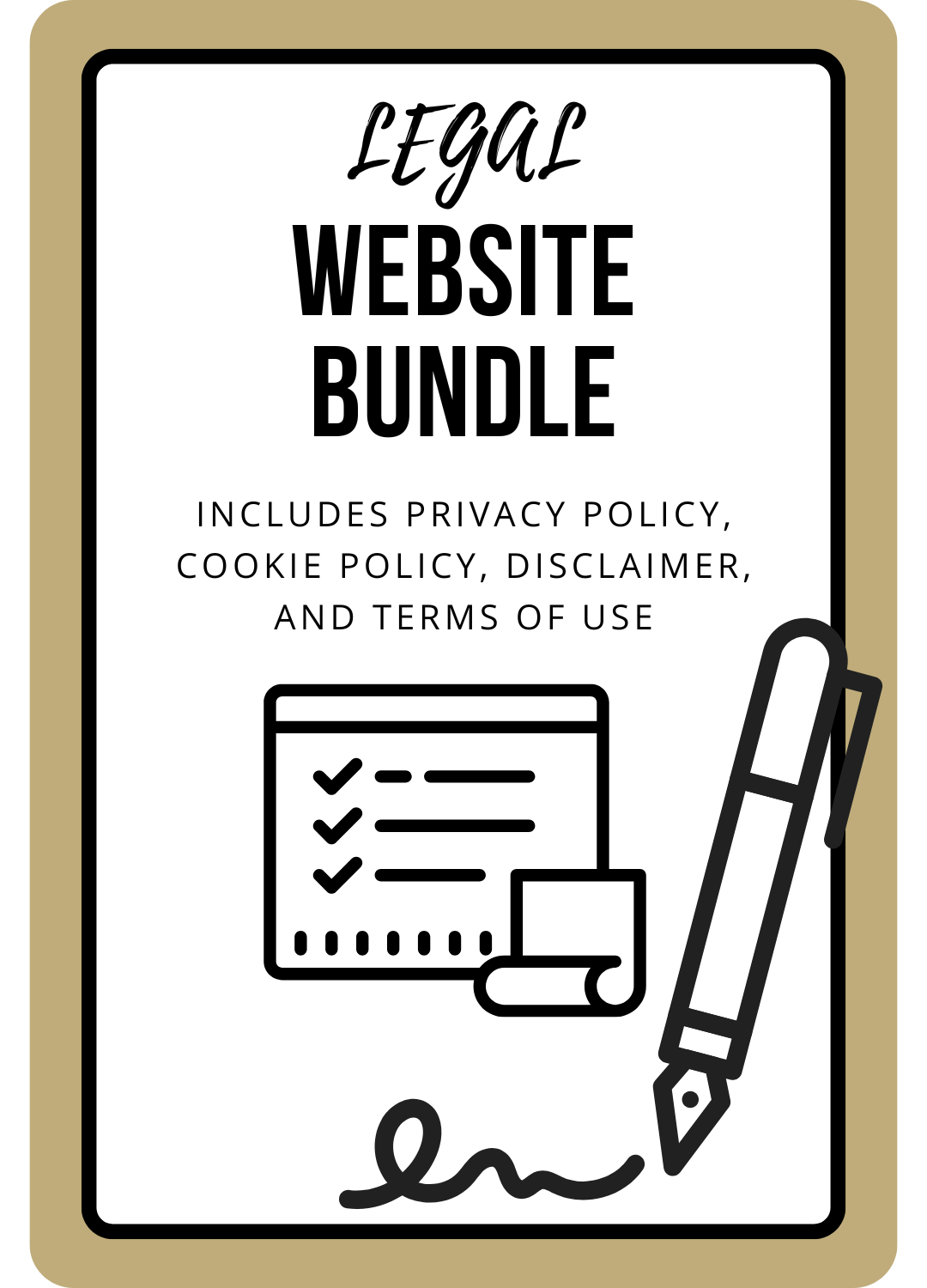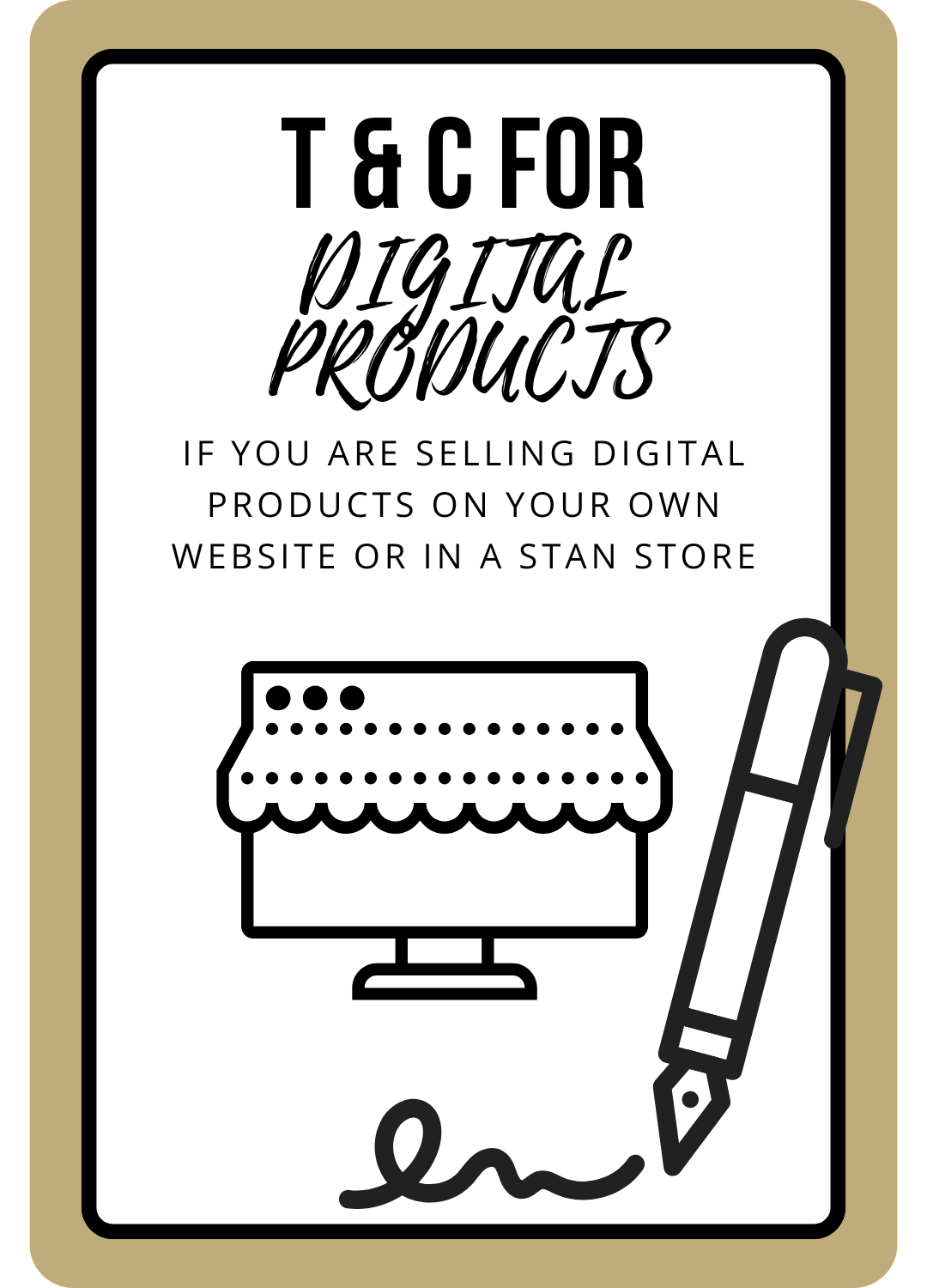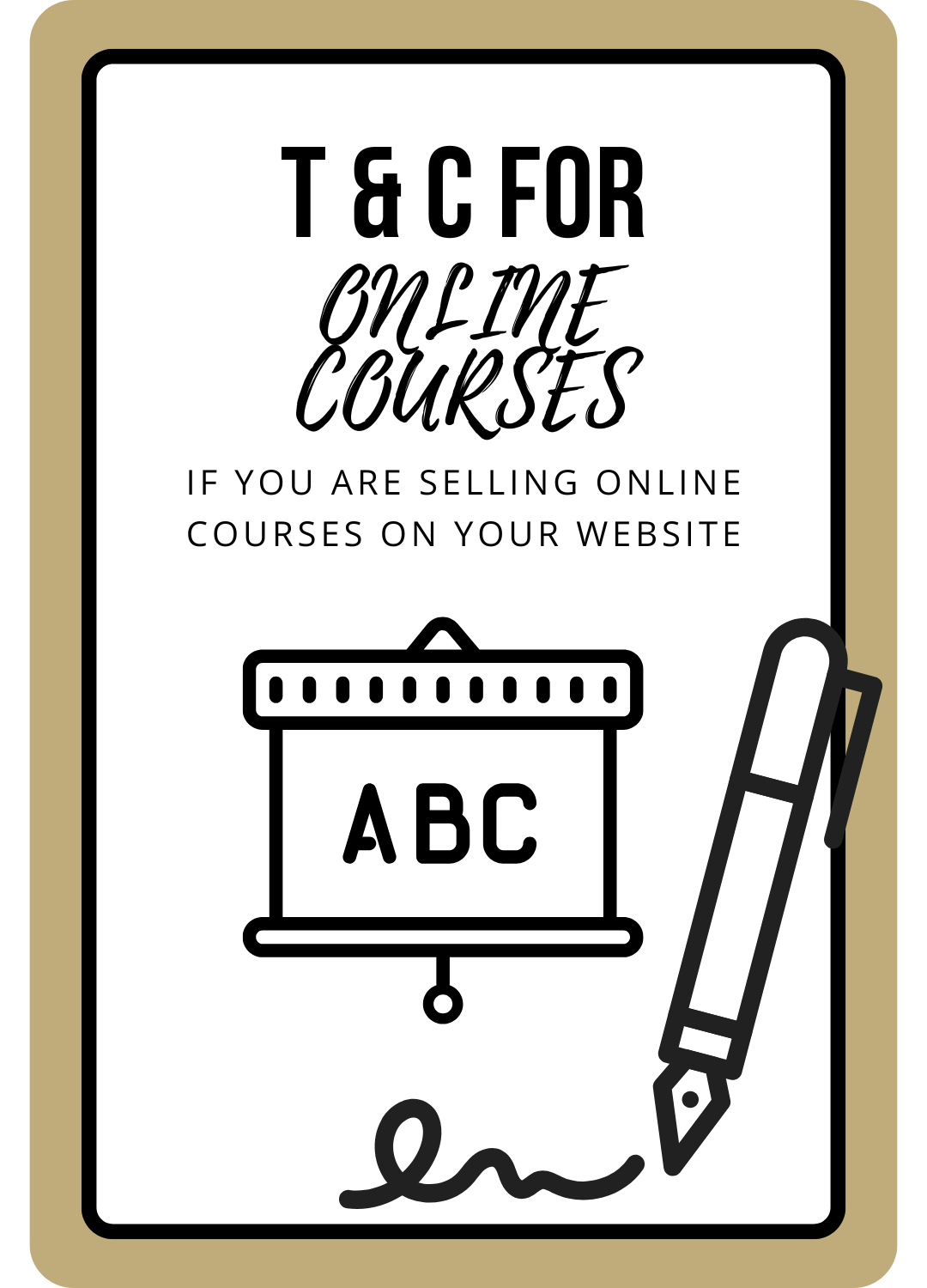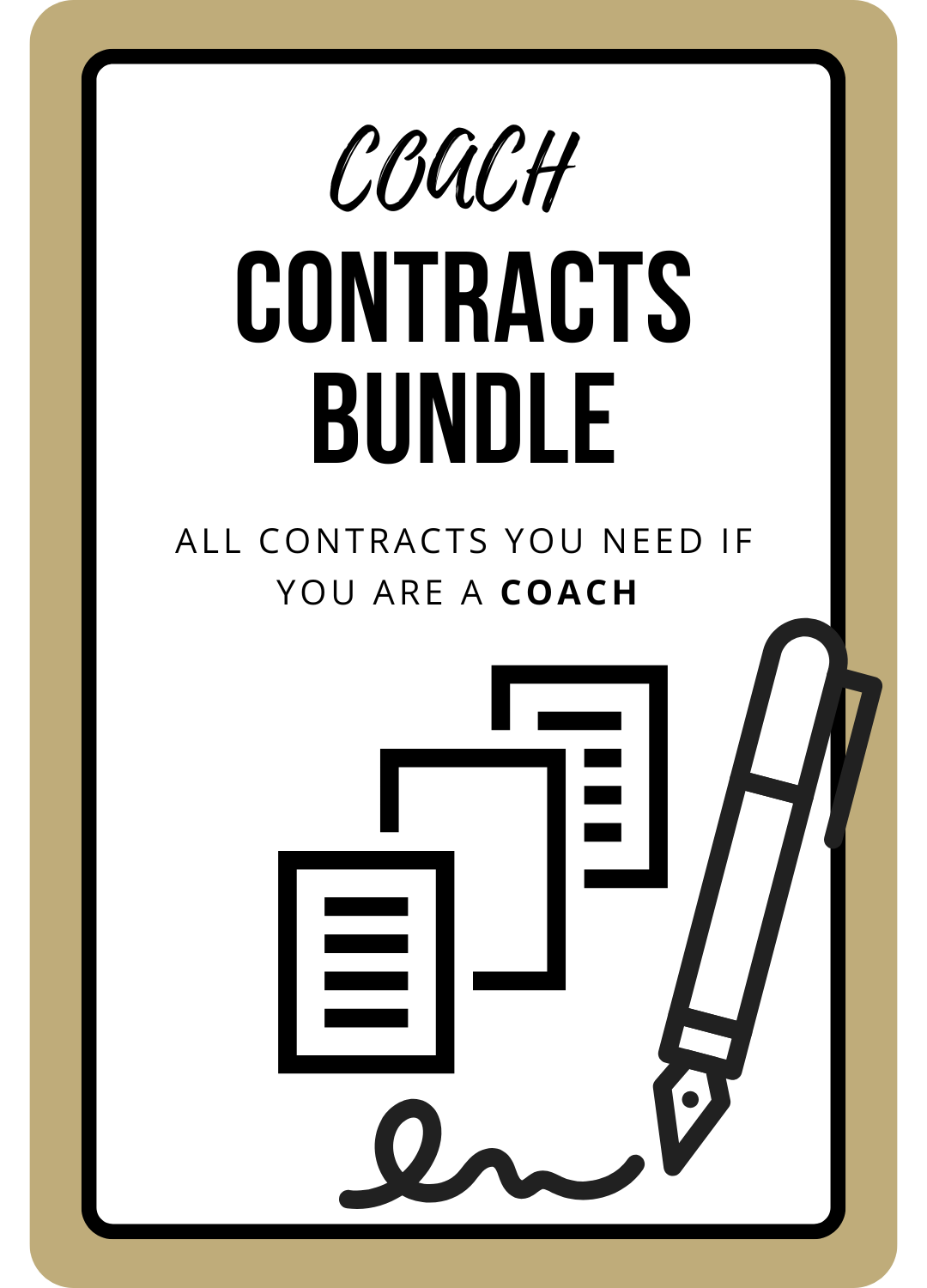9 Coaching Agreements Every Coach Needs (Tailored to Your Niche)
Searching for coaching agreements? Every coach eventually hits that moment where “just winging it” with clients no longer feels safe — and if that’s you, you’re in the right place.
After working with life coaches, business mentors, health coaches, and more, I’ve seen one thing again and again: your risks depend on your niche. Generic, one-page coaching agreements aren’t enough if you’re juggling private sessions, group programs, digital products, or full online courses.
In this guide, I’ll break down 9 coaching agreements every coach should have. You’ll see what the average, simple coaching agreement template leaves out, how to choose the right coaching agreements free of fluff for your niche, and how to protect your income, content, and reputation from day one.
The best part? You don’t have to draft anything from scratch. All of these coaching agreements are pre-written inside my Coaching Agreements Bundle, ready for you to customize in minutes.
This post is all about coaching agreements to give you the (niche-specific) legal protections your coaching business deserves.
Best Coaching Agreements
The Complete Guide to the 9 Crucial Coaching Agreements Template-by-Template
1. A 1-on-1 Coaching Agreement That Stops Scope Creep and Refund Battles
1-on-1 coaching agreements set the tone for your client relationships. It’s not just about payments — it’s your safety net. A good coaching contract template should spell out what’s included (and what’s not), and give you legal backup if expectations get out of hand.
Here’s what 1-on-1 coaching agreements should cover:
Payments & refunds that keep cash flow steady → no more chasing invoices or getting cornered into refund battles.
Cancellations & rescheduling that don’t derail your calendar → stop last-minute cancellations from eating up your schedule.
Confidentiality that goes both ways → your client’s personal details stay private, and your frameworks stay protected.
Scope of services that shuts down scope creep → no surprise demands for “extra sessions” or promises you never made.
IP protections that safeguard your methods and workbooks → clients can’t turn around and use your materials to coach their own clients.
What sets my coaching contract template apart from all the other coaching agreements? Built-in niche-specific disclaimers you can tailor depending on your field:
Life coaches → clarify that coaching isn’t therapy.
Health coaches → make clear you’re not providing medical advice.
Business coaches → limit liability for financial outcomes.
Career coaches → explain you can’t guarantee a job offer or promotion.
Relationship coaches → state you’re not responsible for reconciliation or long-term results.
Here’s what could go wrong without these protections:
A client demands a refund because they didn’t “transform” after just one session.
Someone takes your signature workbook and rebrands it for their own clients.
A client cancels at the last minute — and expects you to bend your schedule to fit them in.
A client claims you promised them a promotion or relationship fix.
With the right disclaimers and boundaries, you’re not taking on responsibility for things outside your expertise — you’re staying in your lane while still delivering incredible value.
👉 My customizable 1-on-1 Coaching Agreement is inside the Coaching Agreements Bundle, ready for you to adapt to your niche.
2. The Virtual Meeting Policy Most Coaches Forget (Until It’s Too Late)
So many coaches offer one-off calls through their Stan store or similar platforms — but here’s the problem: most don’t have clients agree to a proper Virtual Meeting Policy first. They assume it’s fine because payment is collected upfront. In reality, that leaves huge gaps.
But a virtual meeting policy is one of the most essential coaching agreements, and here’s why:
Scope that makes it clear one call = one call → no “bonus” follow-up emails, DMs, or extra support.
Payment terms that block chargebacks → protect yourself when a client cancels at the last minute and tries to dispute the payment.
Rescheduling rules that respect your time → so you’re not constantly shifting your calendar to accommodate flaky clients.
Disclaimers that limit your liability → you’re giving insight during a call, not guaranteeing results or outcomes.
Most free coaching agreements templates won’t cover this, and you won’t find a simple coaching agreement templatethat’s written just for one-off sessions. That’s what makes this policy different — it’s tailored for single coaching calls, so you don’t get burned when a client cancels or files a chargeback.
Here’s what could go wrong without it:
A client cancels one hour before the call and demands a refund.
Someone books a 30-minute session and then insists on weeks of follow-up by email.
A client disputes the charge with their bank, and you’re left liable for damages.
With a Virtual Meeting Policy in place, one-off calls become simple, professional, and risk-free.
👉 You’ll find this ready-to-use Virtual Meeting Policy inside the Coaching Agreements Bundle, so you can keep even your shortest sessions legally sound.
3. A Group Coaching Agreement That Manages Expectations and Protects Your Group
Running group coaching programs or masterminds brings a whole new layer of risk. Instead of one client relationship, you’re managing an entire group dynamic.
Without a proper group coaching agreement, you’re exposed to messy conflicts, unrealistic expectations, and even liability if a participant misuses the program.
Here’s what a strong group coaching agreement should cover:
Group expectations that keep everyone on the same page → clarify participation rules, confidentiality between members, and coach availability.
Payment terms that stop refund chaos → clients can’t demand money back mid-program just because they don’t “vibe” with the group.
Attendance rules that keep your schedule intact → if someone misses a session, they don’t get to reschedule or demand a private replacement.
Confidentiality that protects the whole community → participants agree to keep sensitive stories or business ideas shared in the group private.
Code of conduct that lets you remove disruptive participants → if someone’s behavior harms the group, you have the right to end their participation.
Generic coaching agreements don’t cover the complexities of group programs. That’s why my Group Coaching Agreement is designed specifically for coaching cohorts and masterminds.
Here’s what could go wrong without it:
A participant demands a private 1-on-1 session because they missed a group call.
A member shares another participant’s sensitive personal story outside the group.
Someone constantly disrupts the group dynamic, but you don’t have the right to remove them.
With ironclad group coaching agreements in place, you set expectations upfront, protect your income, and keep your program running smoothly.
👉 My Group Coaching Agreement is included in the Coaching Agreements Bundle (Pro and VIP versions), so you’re covered whether you’re hosting a small mastermind or a large-scale group program.
4. A Testimonial Release Form That Lets You Share Client Wins Legally
Nothing sells your coaching like real results — but using client testimonials without permission is a lawsuit waiting to happen.
A proper testimonial release form gives you the legal right to use glowing feedback, screenshots, photos, or video clips in your marketing.
Here’s what this one of your coaching agreements should cover:
Permission to use testimonials across various platforms → website, social media, ads, and even in paid programs.
Clarity on what type of content can be shared → written feedback, videos, photos, and before/after results.
Waiver of rights so clients can’t revoke later → once they give permission, they can’t suddenly demand you take it down.
Protection for your marketing timeline → you don’t have to scramble to replace testimonials if someone changes their mind.
Here’s what could go wrong without it:
A client asks you to remove their testimonial months later, right before your launch.
You share a client’s Instagram post as a win, and they accuse you of using their content without consent.
You run an ad with a testimonial, and a client threatens legal action because they never agreed to appear in your marketing.
With my Testimonial Release Form, you can confidently showcase client results without worrying about takedown requests or IP disputes.
Ready to simplify your coaching agreements?
The Coaching Agreements Bundle covers your core client work:
✅ A Virtual Meeting Policy for one-off calls
…and that’s just the start. You’ll also get all the website and course protections you need as your business grows.
👉 Get the Coaching Agreements Bundle here and protect every part of your coaching business with ease.
5. Website Terms & Conditions That Stop Copycats in Their Tracks
Many coaches don’t consider this, but your website’s terms of use are one of the most essential coaching agreements for safeguarding your content and freebies.
Without clear website terms of use, you’re leaving the door wide open for copycats and opportunists.
Here’s what strong website terms and conditions should cover:
IP protections that keep your content safe → no one can copy your blog posts, freebies, or digital resources and repackage them as their own.
User rules that block misuse → set boundaries so visitors can’t harass, spam, or disrupt your site.
Limitations of liability → protect yourself from being blamed if someone misuses your content.
Jurisdiction that keeps disputes local → if someone infringes, you don’t get dragged into a lawsuit overseas — you handle it at home.
Here’s what could go wrong without them:
A copycat downloads your freebie and sells it inside their program. Yes, you technically hold the copyright — but without clear Website Terms, they can argue they “didn’t know” it was protected.
With proper website terms in place, you can prove they agreed not to infringe, they were made aware these were your copyrights, and that disputes will be handled in your country. That’s a game-changer if you ever need to take legal action.
With website terms & conditions, you don’t just rely on copyright law — you add an enforceable contract that strengthens your rights and makes copycats think twice.
👉 You’ll find customizable Website Terms & Conditions inside the Coaching Agreements Bundle, so you can publish content with confidence knowing your rights are crystal clear.
6. A Website Disclaimer That Keeps Clients From Misunderstanding Your Role
When a potential client lands on your website, they might treat your blog posts, freebies, or content as advice. That’s risky if you’re a coach in fields like health, business, finance, or relationships.
An ironclad website disclaimer makes it clear you’re sharing information — not guaranteeing outcomes or replacing professional services.
Here’s what a strong disclaimer should cover:
Clarifies your role → coaching is not therapy, legal, or medical advice.
Separates education from results → your resources are for guidance, not guaranteed transformations.
Protects you from liability → if someone misuses your content, you’re not responsible for their results.
Sets boundaries early → clients know from the start what you are and aren’t offering.
What makes my disclaimer page unique? It comes with niche-specific disclaimers already written in. That means you don’t just get the generic “this isn’t advice” line — you get tailored language you can plug in depending on your coaching field.
Here are just a few examples:
Life coach legal disclaimer → clarify that your blog isn’t a substitute for therapy.
Health coach disclaimer template → make clear you’re not giving medical or nutritional advice.
Business coach disclaimer → state you can’t guarantee financial results.
Example:
Imagine a health coach shares a blog post about nutrition tips. A reader follows the advice, has a reaction, and blames the coach for “medical negligence.” With a proper disclaimer page, you make it clear that you never provided medical treatment — just general information — and the liability doesn’t fall on you.
That’s the power of my Website Disclaimer: it keeps your role clear, adds niche-specific protections, and keeps your liability low.
👉 You’ll find the customizable Website Disclaimer inside the Coaching Agreements Bundle, tailored to your coaching niche.
7. A Privacy & Cookie Policy That Keeps You Legal (and Builds Trust)
If you collect any client data — emails for your newsletter, sign-up forms for free resources, or even website analytics — you’re legally required to have a privacy & cookie policy. Skipping this could mean hefty fines under GDPR, PIPEDA, CCPA, and other (State-specific) privacy laws.
Here’s how it plays out in real life:
A coach sets up a freebie funnel to grow their list. Hundreds of people download her PDF, but she doesn’t have a privacy policy on her site. A parent notices their 12-year-old signed up, complains, and suddenly the coach is accused of illegally collecting data from minors.
With a proper privacy & cookie policy in place, it’s clear:
who can sign up (with age restrictions clearly stated),
how personal data will be collected and stored, and
how cookies and tracking tools are used.
👉 A customizable Privacy & Cookie Policy is included in the Coaching Agreements Bundle, so you’re protected on both the legal and trust-building fronts.
8. Terms & Conditions for Digital Products That Stop Clients From Stealing Your Work
If you sell workbooks, templates, or PDFs, you need terms & conditions for digital products to protect your products against misuse and safeguard your earnings.
Here’s what strong digital product T&Cs should cover:
License terms that define how products can be used → clients can use your workbook for themselves, not resell or redistribute it.
Refund policy that avoids messy disputes → once the product is downloaded, no refunds.
IP protections that keep your work safe → make it crystal clear your content stays yours, even after purchase.
Disclaimers that limit your liability → you’re sharing educational resources, not guaranteeing results.
Here’s what could go wrong without them:
Someone purchases your eBook, then shares it inside their mastermind group.
A customer demands a refund weeks later, claiming the product “didn’t work.”
A buyer blames you when they don’t get results from your template.
With terms & conditions for digital products, you have a clear contract that tells clients exactly what they can and cannotdo with your creations.
👉 These Digital Product T&Cs are included in the Coaching Agreements Bundle (VIP version), so your content stays protected while your business scales.
9. Online Course Terms & Conditions That Protect Your Content (and Your Reputation)
Launching an online course is exciting — but it also opens the door to risks that general coaching agreements can’t cover. Without online course terms & conditions, you’re left exposed when students misuse your content, demand refunds, or blame you for their lack of results.
Here’s what strong online course T&Cs should cover:
IP protections that safeguard your course materials → students can learn from your videos, workbooks, and recordings, but they can’t resell or share them.
Refund rules that prevent income loss → clear policies stop students from binge-watching your course and then demanding their money back.
Access terms that keep your platform secure → no password sharing or account “lending” to friends.
Disclaimers tailored to your coaching niche → because every field has unique risks.
That’s what makes my Online Course T&Cs different — they come with niche-specific disclaimers already written in:
Health coaches → clarify you’re not providing medical treatment or fitness advice.
Business coaches → state that you’re not guaranteeing financial results or client success.
Career coaches → explain you can’t promise a job offer, promotion, or salary increase.
Relationship coaches → make it clear you’re not responsible for reconciliation or long-term outcomes.
Life coaches → confirm you’re not acting as a therapist or mental health professional.
Here’s what could go wrong without them:
Someone binge-watches your modules over the weekend and then requests a full refund.
A client blames you when your career course doesn’t land them a job.
A participant posts parts of your course on YouTube, claiming it as their own.
With my Online Course Terms & Conditions, your materials, income, and reputation are all protected.
👉 These Online Course T&Cs are included in the Coaching Agreements Bundle (VIP version), so you can scale your programs without worrying about copycats, refund abuse, or misplaced liability.
Get the Complete Bundle with All the Coach Contracts You Need (Beyond Just a Simple Coaching Agreement Template)
From 1-on-1 sessions to group programs, digital products, and online courses, each stage of your coaching business carries its own risks. A one-size-fits-all template simply won’t cut it.
With the Coaching Agreements Bundle, you’ll have every contract you need — tailored for coaching, written in plain English, and customizable to your niche.
That means you can spend less time worrying about chargebacks, copycats, or client disputes, and more time doing what you do best: coaching.
Why coaches love the Coaching Agreements Bundle:
✅ Protects your income with clear payment and refund rules
✅ Sets boundaries with clients in 1-on-1 and group settings
✅ Safeguards your methods, frameworks, and course materials
✅ Includes niche-specific disclaimers that generic templates miss
✅ Grows with your business — from private sessions to online courses
👉 Get the Coaching Agreements Bundle here and protect your coaching business from every angle.
This post was all about the 9 coaching agreements every coach needs to protect their business.
Other posts you may like:

